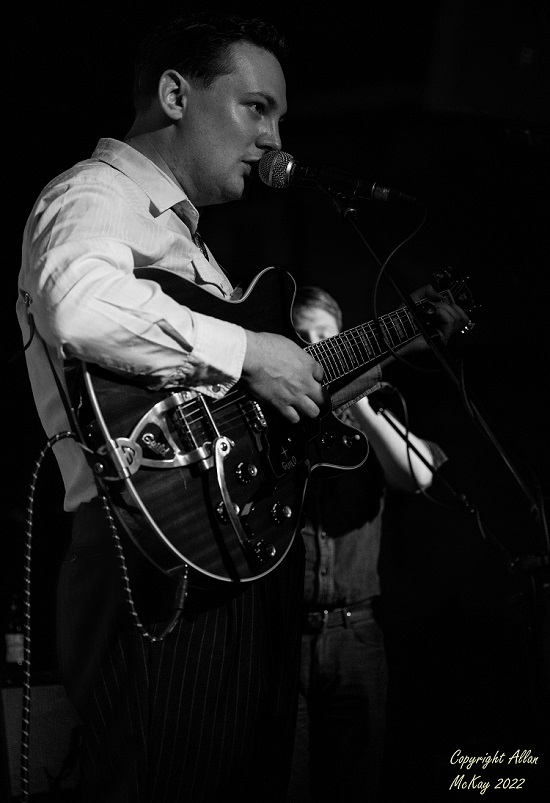
This probably needs a bit of explanation, mainly about the reason why Music Riot exists. What we’re about is promoting music that’s worth listening to but probably isn’t going to get too much mainstream attention. We know that we can’t make a difference for Springsteen or Dylan (not that either of needs any help) but we just might persuade a few people to listen to a Rob Heron album. The five favourites we’ve chosen are all albums that we’ve reviewed this year, so don’t expect to see anything mainstream there. What they have in common is that they’re all good (we don’t believe in negative reviews – there’s enough negativity without us adding to it) and they all deserve to be heard. In no particular order.
St Paul’s Boulevard – Michael McDermott
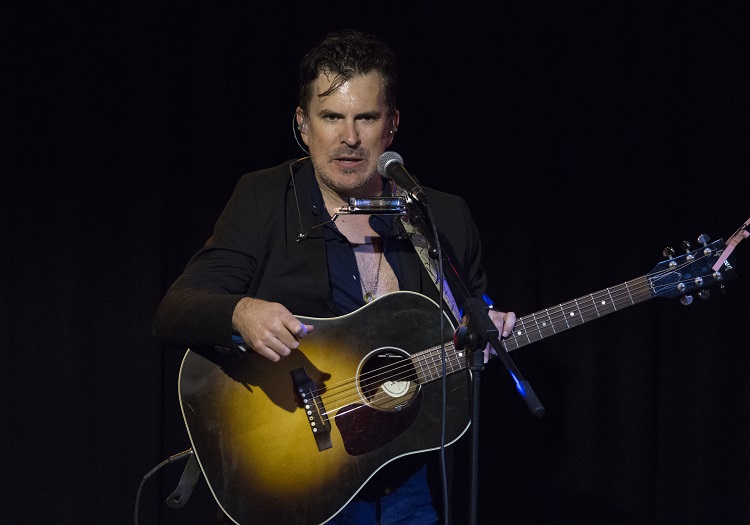
Michael’s been a big favourite at Riot Towers since The Westies ‘Six on the Out’ in 2016 and with good reason. He’s a great songwriter steeped in the tradition of American popular music, whatever the genre. He can also persuade great players to work with him (Will Kimbrough for example) on his albums. ‘St Paul’s Boulevard’ is an album that looks back with gritty realism at Michael’s difficult past, and forward to a positive with clear-eyed, multi-hued optimism. The title track’s a wonderful piece of work, harking back to Michael’s early Chicago days and describing one of those places we probably all have that were important to us because of the people we met there. And the great lyric: “None of the heroes around here have capes, they’re just talking in taverns and on fire escapes”.
‘Paper Hearts and Broken Arrows’ – Rod Picott
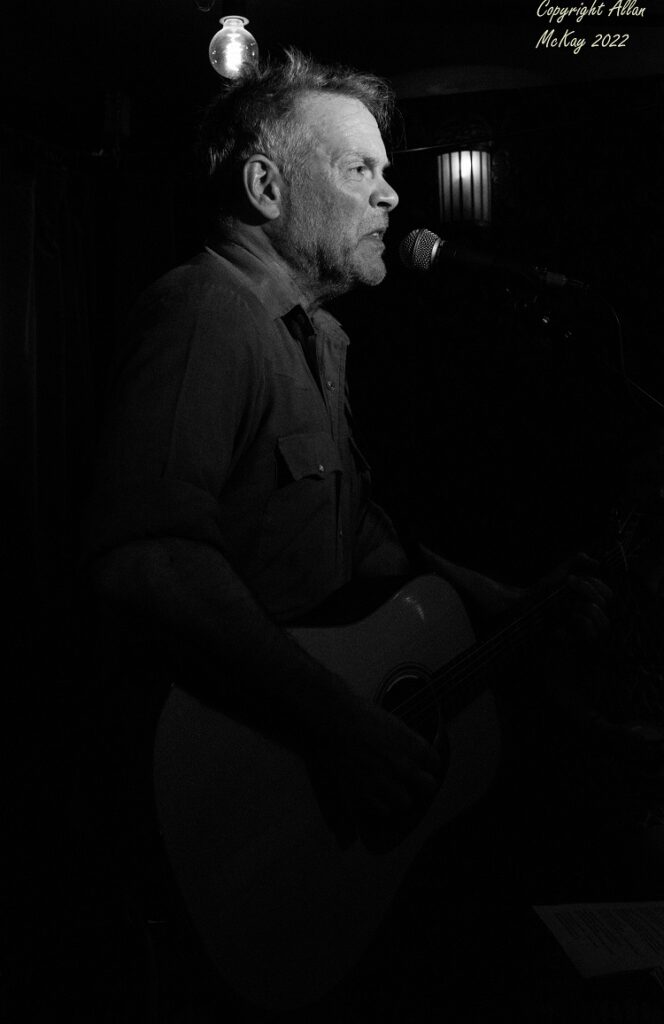
Like Michael McDermott, Rod is another Music Riot favourite. I should also say they’re both great people as well. ‘Paper Hearts and Broken Arrows’ is a potent mixture of songs that range from the very personal through social comment to the historical. ‘Revenuer’ has an interesting history; it’s based on a Taylor Brown novel about moonshine runners, but when Rod mentioned this to Taylor, he fessed up to stealing the idea from Steve Earle’s ‘Copperhead Road’. The other song that really caught our attention was ‘Sonny Liston’, Rod’s exploration of the complicated life of the heavyweight boxer. Let’s finish on a great lyric again: “Two big fists pumping like pistons, nobody punched like Sonny Liston”.
Every Seed we Plant’ – Alice DiMicele
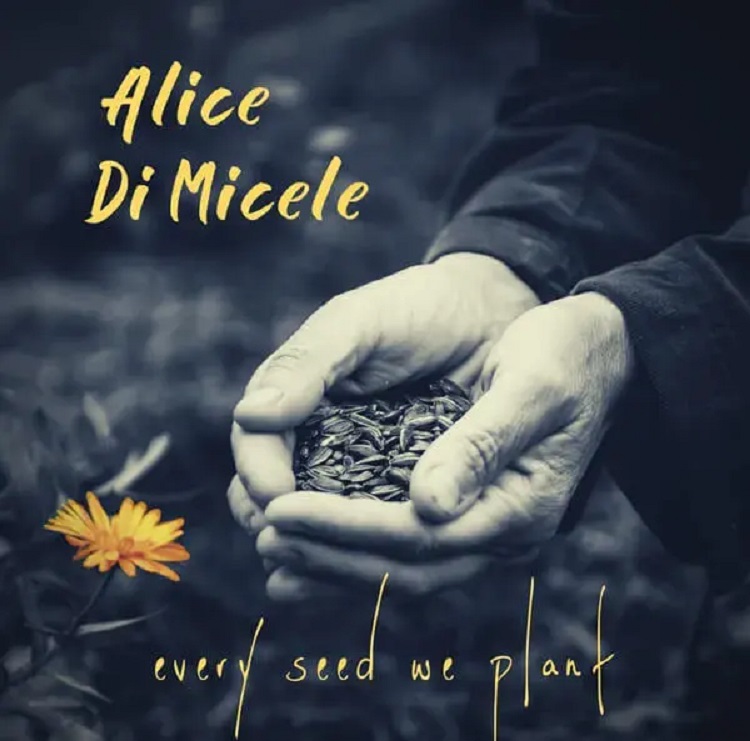
Alice’s sixteenth album is one of the many we reviewed in 2022 that’s influenced by the pandemic that we somehow managed to live through. The songs on the album have a huge emotional range, from raging anger to a heart-warming dog story. ‘Dispatch’ is a very angry song about the killing of a retired black Marine in his own home in White Plains, New York after mistakenly calling in a Life Aid medical alarm – it’s harrowing. ‘Dear Elaine’ is at the opposite end of the spectrum; it’s a tale of the healing relationship built between a woman and her dog. The album takes a journey from historic raw rage to a positive look into our future. Alice’s vocals need a mention as well; she has a huge dynamic range from a sweet whisper to a rock growl. There’s a bit of everything here.
‘Leo’ – Pete Gow
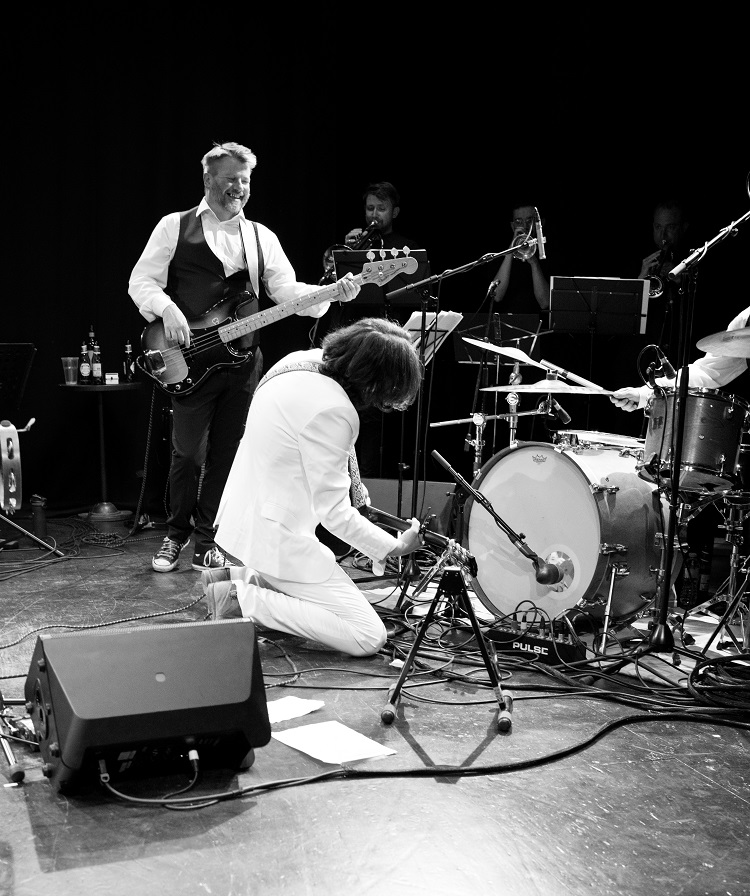
Pete’s a very interesting songwriter. He’s a former member of Case Hardin (with the brilliant Jim Maving) and, as a Scottish songwriter living in and writing about London, there’s an inevitable comparison with the late Gerry Rafferty. ‘Leo’ is a full-blooded production featuring a rock band, string section and a horn section with arrangements by Joe Bennett creating some really interesting textures to back up Pete’s fascinating narratives. If you want two highlights, ‘Side III of London Calling’ paints a post-gig picture of a seedy musician on the pull, while ‘Leonard’s Bar’ is the classic ‘one last job’ petty criminal story. The album hangs together really well and the songs sound great in a live setting. And Pete’s a nice guy as well.
‘The Party’s Over’ – Rob Heron & the Teapad Orchestra
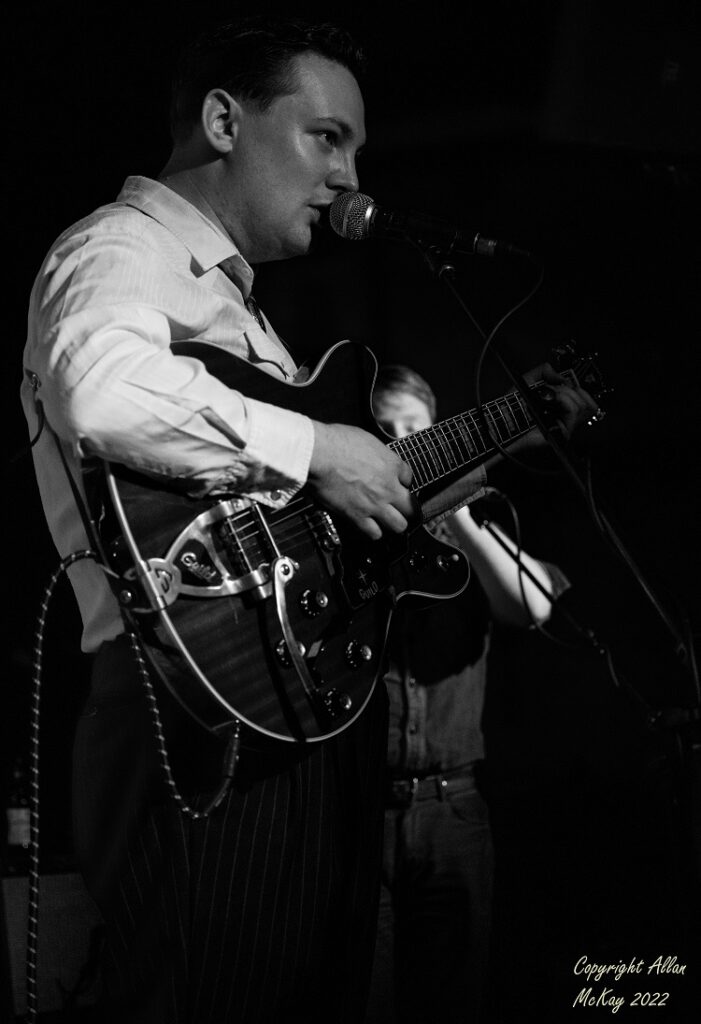
So let’s get this over with first, Rob’s a great guy as well. He read the Music Riot review of this album just before going on stage at the London gig at The Lexington and made a couple of references to it on stage. The album continues Rob’s tradition of eclectic musical influences and even a few political references as well. ‘Snip Snap Snout’ is nonsense zydeco (which is exactly what Rob intended it to be), ‘The Horse That You Rode In On’ channels the Frankie Laine classic ‘Rawhide’ and the light-hearted ‘The Doctor Told Me’ pulls in the House of the Black Gardenia horns to create a New Orleans funeral band feel. I did say it was eclectic. And, like everyone else mentioned here, you really should see Rob & the Teapad Orchestra live – they’re phenomenal.
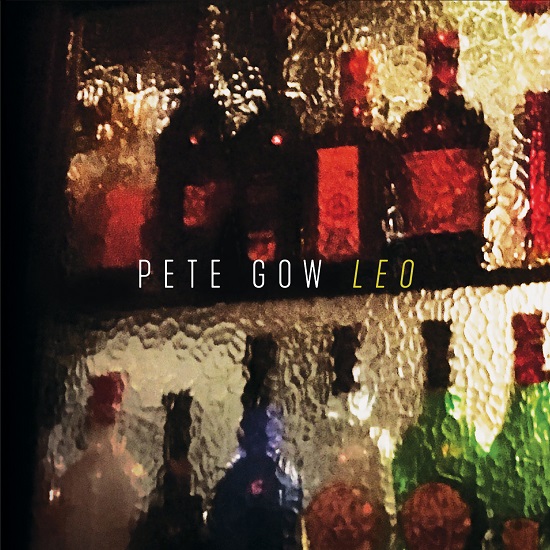
‘Leo’ is the third instalment in the ongoing collaboration between songwriter Pete Gow and multi-instrumentalist Joe Bennett. The previous two albums ‘Here There’s No Sirens’ and ‘The Fragile Line’ have a signature sound that features Joe’s string arrangements; on this album, he’s moved further back into the orchestra to add some horns to the mix, creating a wider palette and a much punchier sound to frame Pete’s (mostly) personal songs. The songs are given a widescreen treatment that nods in the direction of “Born to Run”-era Springsteen, but there are a few other comparisons that maybe aren’t so obvious.
In 1978, a Scottish songwriter living in London released an album featuring a few songs about working in the music business and the characters touching it at tangents that you meet in bars and clubs. ‘City to City’ was a classic Gerry Rafferty album, marrying classic songwriting with interesting arrangements and “Where Would We Be Going” is in the same mould, creating perfect settings for the emotional tug of Pete’s soulful vocals.
The album’s eight songs (‘Where Else Would Be Going?’ tops and tails the album in an upbeat and then a more reflective version) all reward repeated listens. There’s a lot to recommend and to write about every song, but I’ll concentrate on three that cover most of the bases.
‘Side III of London Calling’ is a seedy story of a musician trying to get wired and laid after the gig’s over, set against a mid-tempo groove that nods in the direction of The E Street Band. It’s authentic and gritty and compares the perfection of the woman being pursued to, guess what, ‘Side III of London Calling’. The lyrics keep your attention as wait to hear the outcome and the tune is an absolute earworm. There’s a hint of Elvis Costello/Sam & Dave with a falling down reference and a classic turnaround in the final chorus when the central character describes himself as “just about as welcome as Side V of Sandinista”. It’s great fun.
‘Leonard’s Bar’ is another beast entirely; it’s the centrepiece of the album, it clocks in at over seven minutes and it’s not autobiographical unless Pete has a secret career as an armed robber that he’s not telling us about. It’s difficult to resist the comparison with The Boss’s ‘Meeting Across the River’ as the story unwinds of the career petty criminal coaxed into one last job. The song weaves its way through tempo changes as it builds to the heist section before closing out with The Leo Horns.
‘The City is a Symphony’ is a Joe Bennett co-write that uses the full dynamic range offered by a rock band plus horns and strings as a setting for a lyric that intertwines the pathos of the present with a flashback to a time with a former lover. Joe’s arrangement blends all of the instrumental elements perfectly to create a symphony in miniature that blends seamlessly into the final song, the reflective version of ‘Where Else Would We Be Going?’.
‘Leo’ is a marvellous combination of the important elements of songwriting and production, pulling in ideas from all over the place, including musical references from The Clash to Clapton to create an album with earworms aplenty and a wide range of musical textures that emphasise the power of the lyrics. I’ve not reviewed a better album this year.
‘Leo’ is released on Friday April 22nd on Clubhouse Records.
Here’s the album’s opening single ‘Where Else Would We Be Going?’:
 Andy Fleet isn’t the most prolific of album artists; his last album was in 2013. Which doesn’t really matter; his musical world is not ruled by release schedules, so why not release albums when you’re happy you’ve created something that people will want to listen to and appreciate. And I need to apologise here, this album has been out since March but somehow managed to avoid my attention until now and that’s my loss because “The Sleepless Kind” is a little gem of an album, the kind you want to listen to again and again. Even the cover is a nice piece of art by Alban Low inspired by the song ”Through Closed Eyes”.
Andy Fleet isn’t the most prolific of album artists; his last album was in 2013. Which doesn’t really matter; his musical world is not ruled by release schedules, so why not release albums when you’re happy you’ve created something that people will want to listen to and appreciate. And I need to apologise here, this album has been out since March but somehow managed to avoid my attention until now and that’s my loss because “The Sleepless Kind” is a little gem of an album, the kind you want to listen to again and again. Even the cover is a nice piece of art by Alban Low inspired by the song ”Through Closed Eyes”.
The title tells the story; the theme of the album is the night and particularly the musicians who try to scratch a living in those hours of darkness, and those who make the bleary-eyed commuter journey to a day job that enables them to play another night. “The Sleepless Kind” is a tribute to those people who make music because they love making music. Is there a better reason?
“The Sleepless Kind” (which tops and tails the album) is a dreamy instrumental that sounds like it should soundtrack a Raymond Chandler story: gentle piano and moody, muted trumpet of Andre Canniere combine to paint a picture of a jazz club in the early hours, when you stop worrying about the last train and start thinking about the first train.
The remaining seven songs demonstrate the wide variety of influences feeding into Andy Fleet’s unique style. The band is superb with the slower, more evocative songs but goes up through the gears really smoothly for the more uptempo songs , such as “Been There, Drunk That” and the rollicking seventies, horn-driven groove of “Love’s Enemy”, which tells the story of a collector in a style that hints at Al Stewart and maybe even Gerry Rafferty. “Stolen Years”, a John Lennon tribute, hints at Thunderclap Newman, but “The Hobbyist” and “Through Closed Eyes” are the absolute pivot of the album.
“The Hobbyist” is a powerful tribute to Andy’s friend, the late Iain Bull, opening with some Jackson Browne-like piano, while “Through Closed Eyes” opens with a with a fairly traditional jazz set-up of keys, bass, drums (with brushes, initially) and trumpet and spins out its groove for nearly eight gorgeous minutes, telling the story of the London night from the perspective of an owl, silently watching over the neon-lit streets.
Mainly jazz-orientated, “The Sleepless Kind” also hints at blues, rock, pop and soul. The musicianship is superb throughout, never over-played, and the songs are well-constructed and meaningful. The album oozes class and rewards close attention. One to listen to in the small hours with a single malt close at hand.
“The Sleepless Kind” is out now on Low Vinyl Records (LV1608).
And here’s a little video snippet for you:
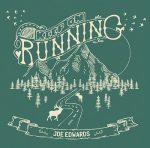 The Kennet and Avon Canal might not be the Mississippi Delta but Devizes, one of the towns it passes through, is the home of Joe Edwards, and its café and bar scene gave Joe the chance to develop his intimate style and delivery. My notes for this album use the word intimate a lot; actually, I use it an awful lot, because it sounds like it was recorded in an empty basement bar. The actual recording was tracked live over a period of ten days with Canadian guitarist and producer Steve Dawson adding various slide instruments to the mix. The album’s mostly blues-based, although the uplifting title song is closer to uptempo country with a full band including organ and pedal steel.
The Kennet and Avon Canal might not be the Mississippi Delta but Devizes, one of the towns it passes through, is the home of Joe Edwards, and its café and bar scene gave Joe the chance to develop his intimate style and delivery. My notes for this album use the word intimate a lot; actually, I use it an awful lot, because it sounds like it was recorded in an empty basement bar. The actual recording was tracked live over a period of ten days with Canadian guitarist and producer Steve Dawson adding various slide instruments to the mix. The album’s mostly blues-based, although the uplifting title song is closer to uptempo country with a full band including organ and pedal steel.
The stripped-back and laid-back production and tasteful playing might not be to everyone’s taste, but there’s no doubt about the quality of the playing on “Keep On Running”, and Joe’s vocals are strong and distinctive on both the slow and the uptempo songs. On a couple of songs on the album, particularly “Trouble”, Joe sounds a lot like Gerry Rafferty on the “City to City” album. If your thing is bluesy songs played with lots of feel and no grandstanding, then this album should be just right for you.
“Keep On Running” is released in the UK on Tiny Mountain Records (TMRCD101) on May 22nd.
 “Wild Skies” is the debut album from Linda Sutti, who is from Piacenza in Italy, but writes and sings in English. Her co-writer and producer on the album is our old friend, Henrik Freischlader, who is German but also writes and sings in English. Following his usual pattern, Henrik not only co-writes and produces the album but also plays drums, guitars and bass. The studio line-up is completed by Omer Klein (keys), Christopher Huber (violin), Cornelius Thiem (cello) and Johannes Krayer (pedal steel).
“Wild Skies” is the debut album from Linda Sutti, who is from Piacenza in Italy, but writes and sings in English. Her co-writer and producer on the album is our old friend, Henrik Freischlader, who is German but also writes and sings in English. Following his usual pattern, Henrik not only co-writes and produces the album but also plays drums, guitars and bass. The studio line-up is completed by Omer Klein (keys), Christopher Huber (violin), Cornelius Thiem (cello) and Johannes Krayer (pedal steel).
Linda’s style is conventional singer-songwriter lyrically while the music moves through jazz and light rock and towards a more poppy sound (but definitely without any EDM). Her voice is strong and distinctive and she’s equally effective on the intimate and raucous ends of the scale with touches of Rickie Lee Jones and Norah Jones (who both had pretty memorable debut albums) at various times.
The album’s opener, “Hurry”, does just the opposite; it’s an appeal from a lover to relax and wind down, but the singer isn’t having any of it. It’s a medium-tempo laid-back jazz groove with what I can only describe as a chauffeur’s gear change towards the end; it’s certainly a lot smoother than the truckers’ variety. “Try” is the most obvious single and pop tune on the album, with a hint of Suzanne Vega vocally and a lighters-in-the-air chorus. The title song, “Wild Skies”, and “Every Tick of Our Time” are both from the introspective 70s singer-songwriter tradition with the former featuring some subtle electric piano and a tempo change to emphasise the chorus while the latter has a beautiful string section intro leading into a song backed with only acoustic guitar.
“Down on the Road” is the album’s ‘get out of my life’ song with a 60s psychedelic backing that Julie Driscoll and Brian Auger would have been proud of, and is followed by the acoustic piece “For the Thrill” which, for me, is the weakest song on the album. “Silence” is a pretty successful attempt to capture a fleeting moment and features some lovely subtle rhythm guitar from Henrik and a couple of very nice hooks to pull you into the verses. “Prince Coffee” uses stirring a cold cup of coffee as a metaphor for trying to make a relationship work and it just about succeeds, with a little help from the polka-tinted arrangement.
“Ordinary Life”, with its minimalist backing deals with a common problem for musicians (or any kind of performing): the paradox of the wisdom and the impossibility of maintaining a meaningful relationship with a civilian, which seems to be resolved in the only song on the album written entirely by Henrik Freischlader, “Dear Mr So-and-So”. The funky guitar and keys along with Linda’s robust delivery create a sound which could be Rickie Lee Jones at her best. The final track, “No Fear”, hints at the 70s pop/folk crossovers of artist like Rab Noakes and Gerry Rafferty (and more recently John Tams) combining folk roots with electric instrumentation to good effect.
Overall, it’s a very varied and listenable album, which you would expect with the involvement of Henrik Freischlader, and there are a couple of standout songs which would work on Radio 2 in the UK. Linda Sutti’s voice is strong and convincing throughout and the strings and pedal steel aren’t overused, which increases the impact when they do feature. My only criticism is that the lyrics could occasionally be a bit stronger, which may be down to both Henrik and Linda writing in a second language; I certainly wouldn’t want to try writing a lyric in French. Putting that aside, there’s a lot to like about this album and I recommend that you give it a listen.
Out now on Cable Car Records (CCR 0311-44).


